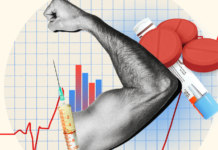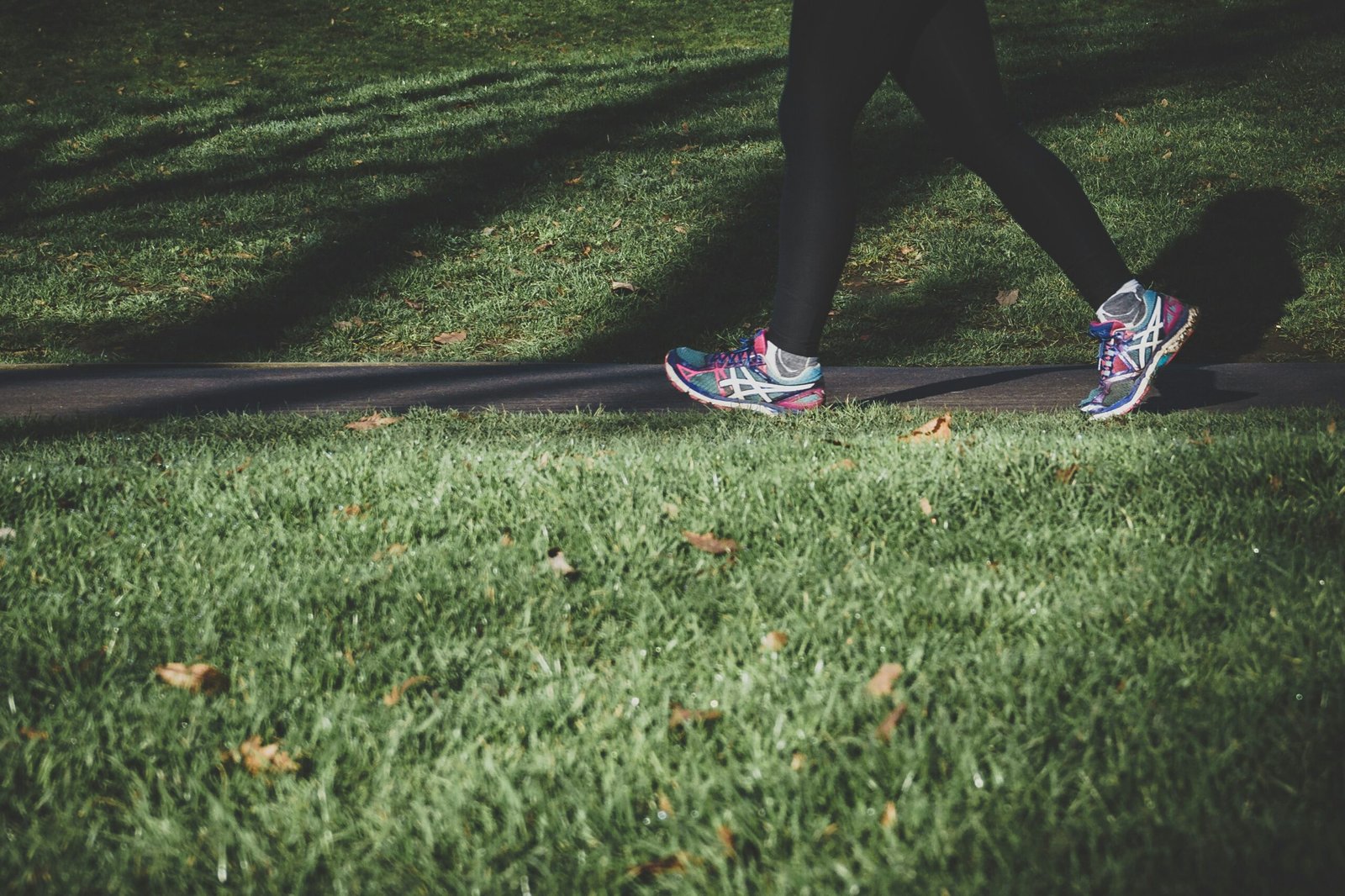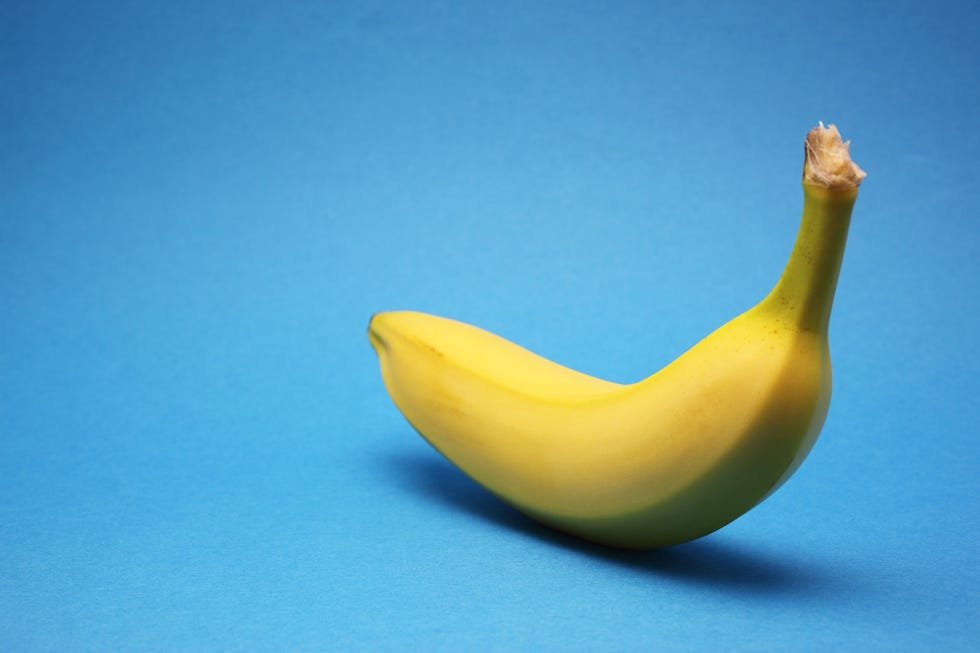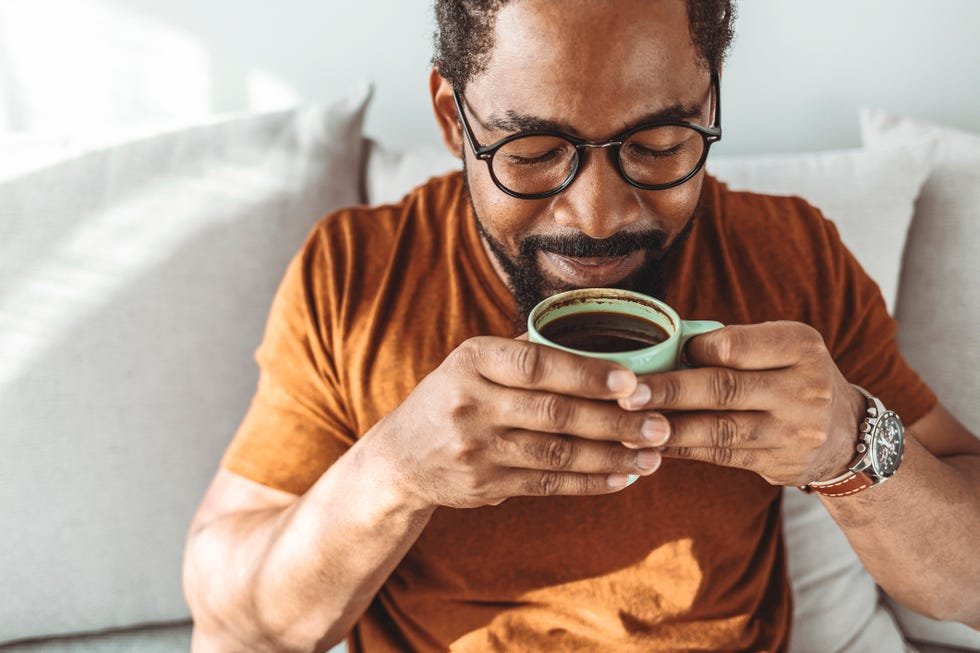IN AN IDEAL world, you’d be able to get hard on demand—and stay that way for as long as the scenario requires. But guess what? Erections are a fickle friend. Sometimes they appear at painfully inconvenient times (like, during an exam at the doctor’s office). And then sometimes when you’re really counting on them—like while that smokeshow you’ve been dating starts tearing your clothes off—they’re MIA. It’s frustrating for sure. But whatever you do, try not to sweat it too much.
Firstly, these boner blunders are super common. In the U.S., up to 30 million men of all ages—including in their 20s and 30s—experience erectile dysfunction (ED). And regardless of whether you meet the criteria for ED, experts say it’s completely normal to have trouble getting or keeping a boner up to 25% of the time.
“One-off occurrences where you have a hard time getting or maintaining an erection are typically nothing to worry about,” says Dr. Simran Shamanur, a consulting sexual health physician Allo Health. “This can happen for various reasons, including stress, fatigue, or even a temporary distraction. Our bodies are complex, and fluctuations in sexual performance are part of that complexity.”
Second of all, stressing about it could drive performance anxiety, which will only make it even harder (no pun intended) for arousal to happen.
The key is perspective: don’t magnify a single awkward incident, because it doesn’t define your masculinity or abilities in the bedroom,” says Dr. Farhan Malik, MD, a penile enlargement specialist and owner and senior medical director at Prometheus by Dr. Malik. “Relax, and remember you have nothing to prove.”
Need a little extra peace of mind? Suzannah Weiss, resident sexologist for Biird and author of Subjectified: Becoming a Sexual Subject, notes that for a lot of folks, a lack of erection isn’t going to make or break their enjoyment—because most penetration isn’t the only—or even the most reliable—path to an orgasm.
Even though the mechanics of your penis can be a bit unpredictable, rest assured that there are some steps you can take to support stronger, longer lasting erections. With that in mind, here are 23 expert-approved tips to help you stay hard.
1) Talk to your partner.
Struggling to get up, and stay up, can lead to performance anxiety in the bedroom, especially when you’re trying to satisfy someone new. When the time comes to get down, you might get so stressed out about not getting hard that, well, you don’t get hard.
Before you have sex, acknowledge your erection difficulties with your partner and assure them it has nothing to do with your attraction to them, says Zachary Zane, Men’s Health sex columnist and author of Boyslut: A Memoir and Manifesto. Maybe you bring it up as you’re getting undressed.
“Say something like, ‘Just a heads up, I sometimes get in my head and struggle with getting hard. I just want you to know that it has nothing to do with you. I find you so sexy; I just sometimes get a little nervous,'” Zane suggests. “Odds are, your partner will appreciate your transparency and vulnerability,” he says.
Having that conversation beforehand may just relieve enough pressure that you are able to get hard after all.
2) Reduce stress.
Your stress level may be contributing to your performance issues in bed, which in turn, may cause you to experience even more stress. Talk about a vicious cycle! Studies have shown that those with high levels of stress more commonly suffer from erectile dysfunction, and sexual performance was seen to improve after stress management protocols were put in place for participants. It’s never as easy as it sounds, but taking steps to relieve your stress may help you in more ways than one.
3) Try a cock ring.
Did you know that a cock ring can help you maintain an erection? This O-shaped toy fits around your penis and helps keep blood in the shaft, where you want it. A cock ring also helps prevent venous leakage, a form of erectile dysfunction where blood flows to your penis, but has trouble staying there. (Giddy, a new cock-ring-like gadget designed to treat ED, may also help guys with venous leakage maintain stronger erections.)
There are four types of cock rings, all of which can help in the erection department:
- Adjustable rings
- Stretchy rings
- Vibrating rings
- Solid rings
To learn more about the different types, check out our guide to cock rings. And here’s where to shop some of our favorite cock rings on the market.
4) Work your Kegel exercises.
The pelvic floor muscles play a role in sexual activity, explains Robert Valenzuela, MD, a board-certified urologist and Promescent medical advisor. “Contractions of the pelvic floor muscles (called Kegels) help produce an increase in the penis pressure and the rigidity of the penis.” In simpler words, Kegel exercises—where you contract and release your pelvic floor muscles—can help strengthen your erections. Here are some tips on exactly how to practice Kegel exercises.
Kegel exercises are also a component of a practice known as “penis rehabilitation,” adds Michael Ingber, MD, a urologist and urogynecologist. “Just like after shoulder surgery, when you might see a physical therapist to work on the muscles, strengthening them, and increasing range of motion, the same thing is true for the penis, the muscles, and nerves that play a role in erectile function.” That’s why many urologists recommend early penile rehabilitation—which includes Kegels—shortly after events that affect the erectile nerves of the penis, such as prostate cancer surgery. “This is done in conjunction with medical therapies like Viagra,” Ingber says.
5) Watch what you eat.
Foods that are bad for the heart are also bad for the penis—which makes sense, since the heart and penis both depend on blood flow to function properly. According to a 2020 study, the Mediterranean diet—which includes fruits, whole grains, heart-healthy fats like nuts and olive oil, red wine, and vegetables—is a good place to start.
“The link between the Mediterranean diet and improved sexual function has been scientifically established,” Irwin Goldstein, MD, director of sexual medicine at Alvarado Hospital in San Diego, told WedMD.
6) Get more exercise.
According to Ryan Berglund, MD, a urologist at the Cleveland Clinic, blood flow is the key to a healthy erection, and there’s nothing that encourages blood flow like aerobic exercise. Not only does it keep you in shape—it also builds the body’s nitric oxide, which helps maintain erections.
While running is great, stay off the bike if you can help it. “Endurance cyclists who spend a long time on their bike seats may have more trouble with ED,” says Erin Michos, MD, an associate professor of Medicine at the Johns Hopkins University School of Medicine.
“This is because bike riding can compress the pudendal artery, which provides blood flow to the penis,” Ingber adds. “Using a special bike seat (split-seat) along with wearing special shorts can help prevent ED.”
7) Quit smoking.
A 2015 literature review found that smokers are at a higher risk of developing erectile dysfunction than the rest of the penis-owning population. There’s also some evidence that smoking affects erection strength—and size.
“In addition to damaging blood vessels, smoking may cause damage to penile tissue itself, making it less elastic and preventing it from stretching,” says Goldstein.
We have yet to hear a better reason to quit.
8) Drink coffee.
Though few things are worse for your erection than a cigarette habit, coffee can actually help you out below the belt. A study by the University of Texas Health Science Center at Houston found that men who consumed the caffeine equivalent of 2-3 cups of coffee per day were less likely to suffer from erectile dysfunction than those who preferred to wake up with caffeine-free beverages.
9) Try some weed.
While some studies shows that smoking weed will give you marijuana’s version of “whiskey dick,” others suggest that cannabis use might actually improve sexual function. Marijuana affects everyone a little differently, so you’ll have to experiment to see if it helps or hurts your erections. If you need help relaxing and getting out of your head, then a touch of the devil’s lettuce might be just what your erection needs.
10) Get a vasectomy.
If you’re finished producing offspring (or you’re sure you don’t want kids), consider investing in renovations at the sperm factory.
“The risk of a contraceptive failure can be a big source of anxiety for some men, especially those who’ve had a birth control disaster—or a scare—in the past,” says Karen Donahey, Ph.D., director of the sex- and marital-therapy program at Northwestern University.
That anxiety can, in turn, lead to erection problems—and cause the same vicious circle that makes performance anxiety such a mood killer.
But if there’s no sperm, the risk of pregnancy is beyond minuscule: A properly performed vasectomy has an effectiveness rate of 99.9%. Depending on your insurance situation, the procedure typically costs between $0 and $1,000, according to Planned Parenthood.
“Many of my patients end up paying $0 for them if they have low deductible plans,” Ingber says. “We can often do these in the office setting, with a local anesthesia, which can minimize cost for some patients.”
11) Stay faithful.
It’s common for penis-owners who start having affairs to stop having erections. So common, in fact, that doctors who treat erectile dysfunction often ask their patients if they’re getting any action on the side.
Unless you’re in an open or polyamorous relationship, you’re bound to feel guilty when you have sex with your partner after you’ve been secretly getting it on with someone else. Guilt can turn to anxiety, and that can kill an erection.
12) Reduce your risk of diabetes.
Erectile dysfunction is common in people who have diabetes (and especially type 2 diabetes), according to the Mayo Clinic. The disease hits the penis with a double whammy: It accelerates the process of arterial disease, and it slows the transmission of stimuli along nerves throughout your body. And, trust us, a numb penis is not a happy penis.
Type 2 is the most prevalent form of diabetes among American adults. There are various ways to prevent it, including eating diabetes-fighting foods and exercising regularly. You should also be vigilant in checking your blood sugar (talk to your doctor about the best methods).
13) Get your testosterone levels checked.
Low testosterone doesn’t directly affect the mechanisms involved in your erection, but it does affect your libido, making it harder to get turned on—and harder to get, well, hard. If you notice an uncharacteristic drop in your sex drive—or any of these symptoms of low testosterone—you might want to ask your doc if your T levels are lower than they should be. If they are, your doctor can help get your testosterone back to levels within the normal range.
14) Take it easy when you’re thrusting.
One vigorously misplaced thrust is all it takes to rupture the corpora cavernosa, the elongated “erectile chambers” that run the length of your penis. Don’t believe us? Try aiming your erect penis at the trunk of a tree—it’s roughly the same density as your partner’s pubic bone.
A complete rupture will require surgery within 24 hours to stanch internal bleeding and reduce the risk of permanent damage. A partial tear isn’t as serious, but it may cause problems later on. As the linings of the corpora heal over with scar tissue, they lose their elasticity—leading to curvature, pain, and eventually impotence.
By some estimates, more than a third of impotent penis-owners have a history of “penile trauma.” To protect yourself, be careful when your partner’s on top. That’s the position most likely to cause damage.
15) Walk more.
In one study, researchers found that men who walk just 2 miles a day had half the rate of erection problems of more sedentary men, says Goldstein. (Twenty minutes of jogging or 30 minutes of weight training will work, too.)
“What’s good for your heart health is good for the vasculature to your penis,” says Dr. Justin Houman, MD, a board-certified urologist and men’s sexual and reproductive health specialist.
Deposits that clog or stiffen penile arteries can also wilt erections. “Guys tend to think of their arteries as simple pipes that can become clogged, but there’s a lot more going on than that,” says Laurence Levine, MD, a urologist at Chicago’s Rush-Presbyterian Medical Center. “The linings of those blood vessels are very biologically active areas where chemicals are being made and released into the bloodstream.”
The more you exercise, the healthier, cleaner, and more flexible those linings become.
16) Yawn a lot.
Sorry if reading the word “yawn” made you yawn just now. Actually, we’re not sorry—because as far as your body’s concerned, yawning and getting an erection are practically the same thing.
They’re both controlled by a chemical called nitric oxide. Released in the brain, it can either travel to the neurons that control mouth opening and breathing, or go down the spinal cord to the blood vessels that feed the penis. Sometimes it does both (that’s why a big yawn can cause a tremor down under).
We don’t recommend foreplay with your mouth hanging open. But allowing yourself to yawn now and then throughout the day may help prime the neurochemical pathways that lead to good, sturdy erections.
17) Get plenty of sleep.
Your penis needs as much shut-eye as it can get. Every night while you sleep, you have between three and five-hour-long erections. You probably noticed this phenomenon the last time you had to pee at 4 a.m.
Those erections are not there just to make life interesting for your bedmate. They work to recharge your penis—keeping it well-nourished with oxygenated blood.
“Theoretically, the more nocturnal erections you have, the more flexible your erectile tissue will become. And that may help keep erections strong as the years wear on,” Goldstein explains.
18) Take amino acids.
If you’re dealing with mild erectile dysfunction, you might not need prescription medication to get your groove back. Amino acids L-citrulline and L-arginine are both known to improve sexual performance, and you can get them in pill- or power-form.
“They help increase some of the neurotransmitters that signal for more blood flow to the penis,” Houman explains. Just make sure you check with your doctor before trying a new supplement—the supplement industry isn’t well regulated, and some supplements might negatively interact with prescription drugs.
19) Try ED medication.
If all else fails, there is ED treatment in the form of drugs. Viagra, the first ever oral treatment for erectile dysfunction, works for a few hours before its effects start to diminish. Then there’s Cialis, which can aid your erections for up to 36 hours (that’s why it’s often referred to as “the weekend pill”). Stendra is the fast-acting option—it kicks into gear within 15 to 30 minutes of taking a pill.
“Ultimately, you just have to find whichever medication fits your lifestyle or fits the occasion,” Houman says.
There are plenty of options out there, and they all work in a similar fashion. ED drugs enhance the effects of nitric oxide, a chemical your body produces that relaxes the muscles and arteries in the penis. That helps more blood flow go where you want it to go during arousal—and only during arousal. You’re not going to end up with a 36 hour boner.
Once you’ve started taking ED meds, you might experience some side effects. “Some guys will experience headaches, flushing, heartburn, and lower back pain,” Houman says. “For the most part, the more often you take the medication, the more your body will get used to it, and those symptoms will wash off.” If your side effects hang around, your doctor can help you find a different ED pill that suits your needs.
Talk to your doctor about which ED medications might be right for you—and know that men’s wellness brands like Hims and Romans both prescribe ED medication online and then deliver them straight to your door.
20) Try Trimix
If traditional oral ED medication isn’t working, there’s something called Trimix, where you inject the base of your penis with vasodilating agents, says Jed Kaminetsky, MD, a board-certified urologist and Promescent medical advisor. “It’s actually less painful than it sounds and is effective in over 90% of men with erectile dysfunction.”
However, while Trimix works great, “one has to be aware of complications,” Ingber says. “In some men, this erection can persist and become painful. If it lasts more than 4 hours, it’s called ‘priapism,’ and it becomes a medical emergency where you will need to go to the emergency department.”
21) Get a penile implant.
If ED medication and lifestyle changes don’t improve your sexual function, a penile implant surgery can help you achieve the erections of your dreams. Through a small incision, a doctor inserts a pump inside your scrotum that draws from a reservoir filled with sterile water. Any time you want an erection, you can press on the pump, sending fluid into the penis for a strong erection that lasts as long as you need it to. Like with any surgery, there’s a risk of complications, but overall, people who get penile implants report high rates of satisfaction—and so do their partners.
22) Practice mindfulness.
Particularly if you find that you tend to lose your erections because your mind wanders during hookups, Weiss recommends incorporating mindfulness into your sex life.
“Mindfulness involves being fully present and engaged in the current moment, without judgment,” explains Aleece Fosnight, a board-certified physician assistant and sexual medicine specialist at Aeroflow Urology. “When applied to sexual health, especially penile function, it can help reduce anxiety, increase awareness and sensitivity, and enhance overall satisfaction.”
Fosnight suggests starting with some deep, slow, mindful breathing right right before or during foreplay to calm your body and mind.
“Mindfulness shifts focus away from performance pressure and brings attention to the sensations and enjoyment of the moment,” adds Dr. Shamanur. “Deep breathing increases oxygen levels in the blood, which can help maintain a stronger erection by improving overall blood circulation.”
During sex, Fosnight recommends tuning into all your senses—the texture or smell of your partner’s skin, the temperature of the air, the sound of their body rubbing up against yours—without thinking ahead to whatever outcome you’re trying to achieve.
33) Switch things up.
Research has shown that our brains crave novelty. Ever noticed how hooking up with someone new is particularly exciting, or how that first bite of a perfectly cooked steak tastes even better than ever bite after that? It’s because new experiences light up our brains in a way that feels too darn good to resist.
That’s why Sofie Roos, a licensed sexologist, recommends changing things up before you lose your erection.
“Take a break from penetrative intercourse for kissing or oral sex, switch sex positions or introduce a sex toy,” she says. “The most important thing is that you add something new to the scenario.”
According to Roos, this tactic can often re-trigger arousal so you’re good to keep going for as long as you and your partner desire.





























